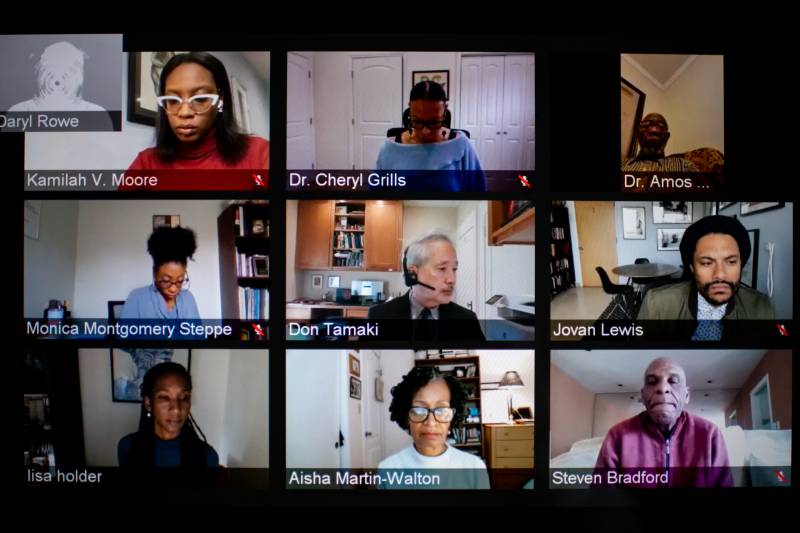There’s a lack of transparency, accountability and clarity on what exactly goes into algorithms that are used to determine outcomes.
“While it is in violation of federal law to deny people housing, employment and education based on race, you can't sue an algorithm,” Milner said. “You don't even need to use race as a variable. The legacy of slavery [has] made ZIP codes proxies for race.”
Le and Gore-Mann pointed out how racism in the tech industry can be traced back to redlining.
“Redlining lives on in the data that determines which neighborhoods get good access to the internet or new services and technologies,” Le said. “This is why the reparations work is so important. It gives us a chance to change the data points that give rise to data-driven discrimination.”
Without proper oversight, systems can embed the history of discrimination and redlining into decisions, Le added.
“We need race-aware data so we can test these systems that control access to economic opportunity for bias and discrimination,” he said. “The housing discrimination and the redlining of the past is still quite well and alive today. Our anti-discrimination laws have not kept pace with these technologies.”
One solution Gore-Mann and Le recognized is a mapping tool designed with social equity in mind.
CalEnviroScreen uses equity indicators like poverty, unemployment and exposure to pollution to identify marginalized communities that are eligible for increased investment from the state’s Greenhouse Gas Reduction Fund. With the help of this algorithm, over $4.5 billion in state funding has gone toward investments in Black and Latino communities.
This program is a potential template to undo past discrimination and drive more investments into communities to improve economic opportunities.
“The reparations solutions will not close the gap if we're continually allowing technology to widen the gap,” Gore-Mann said. “We see our praxis as the intersection between that economic equity, racial equity and building wealth.
“The data goes both ways — to help us analyze and create good policies and remove disparate impacts, but also to hold companies accountable.”
